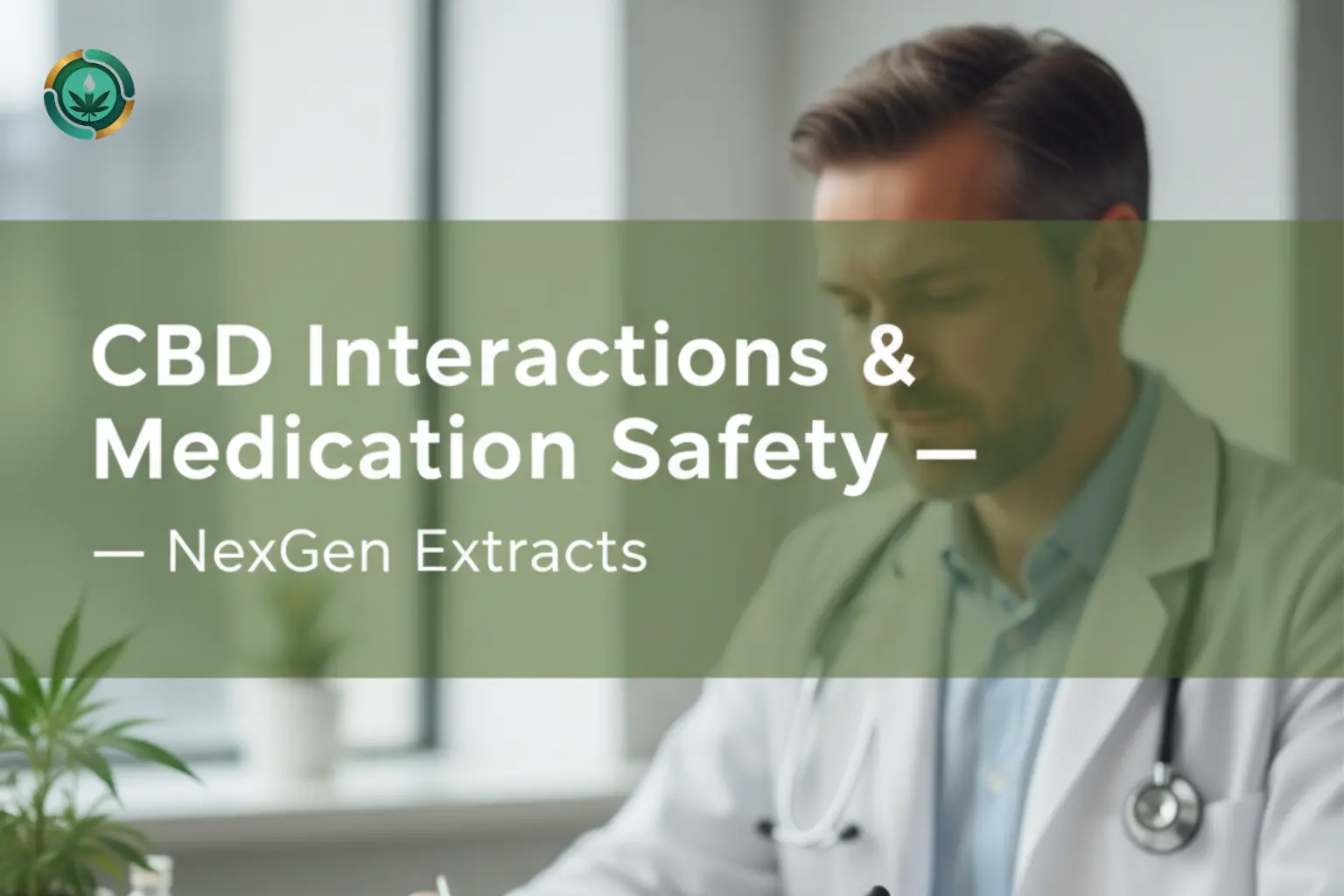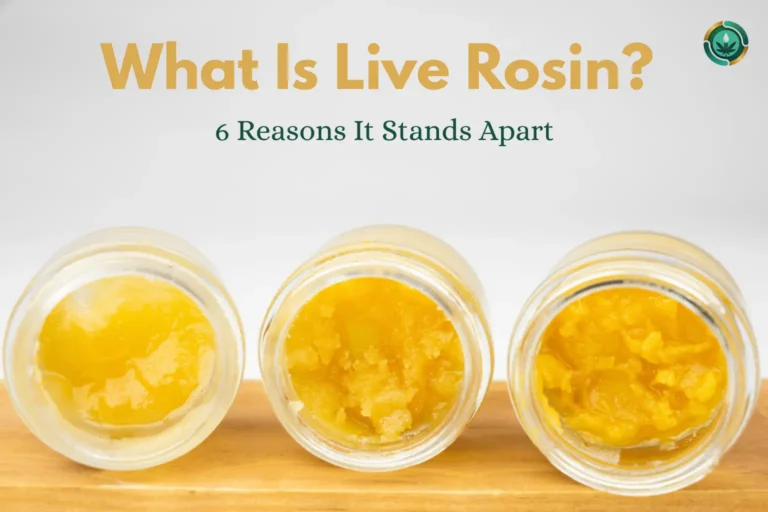
Introduction: CBD Is Everywhere — But Safety Still Matters
CBD has become one of the most discussed natural supplements in America. Millions of people now use it for pain, anxiety, and better sleep.
However, most consumers don’t realize that CBD can interact with prescription medications. These interactions can change how your body processes certain drugs — sometimes reducing their effects, and other times increasing them dangerously.
This guide breaks down how CBD interacts with common medications, what science actually says, and what to tell your doctor before using it.
Along the way, we’ll also touch on related hemp compounds like THCa Flower and Delta strains — since all cannabinoids share metabolic pathways that matter for safety.
Understanding How CBD Works in the Body
CBD, or cannabidiol, interacts with the endocannabinoid system (ECS) — a biological network that regulates mood, pain, and inflammation.
But unlike THC, CBD doesn’t cause a high. Instead, it works indirectly by influencing receptors such as CB1, CB2, and serotonin pathways.
CBD is also metabolized in the liver, primarily through enzymes called cytochrome P450 (CYP450). Here’s where the problem begins — many prescription drugs use these same enzymes.
The CYP450 Connection
The CYP450 enzyme family helps the body break down toxins and drugs. CBD can inhibit these enzymes, slowing the metabolism of certain medications.
When that happens, the drug’s concentration may rise in the bloodstream, increasing the risk of side effects.
This is why doctors compare CBD’s interaction pattern to that of grapefruit juice — both can affect how drugs are processed.
Common Medications That Interact With CBD
While CBD is generally well-tolerated, some medications require caution. Let’s go over major categories where interactions are most significant.
1. Blood Thinners (Anticoagulants)
CBD can increase blood levels of medications like:
- Warfarin (Coumadin)
- Apixaban (Eliquis)
- Clopidogrel (Plavix)
By slowing how these drugs are metabolized, CBD can increase bleeding risk. Even small doses may affect INR readings (a measure of blood clotting).
2. Anti-Seizure and Anti-Epileptic Drugs
CBD gained medical attention through Epidiolex, an FDA-approved drug for certain epilepsy syndromes.
However, studies show CBD can still affect medications like:
- Clobazam (Onfi)
- Valproate (Depakote)
- Lamotrigine (Lamictal)
Combining them without medical supervision may cause drowsiness or liver strain. Always consult your neurologist before mixing CBD with anti-seizure meds.
3. Antidepressants and Anti-Anxiety Medications
CBD influences serotonin signaling, which can enhance or interfere with antidepressants such as:
- SSRIs (Zoloft, Prozac)
- SNRIs (Cymbalta, Effexor)
- Tricyclic antidepressants (Elavil)
For some, combining CBD may enhance calmness. For others, it may amplify sedation or dizziness.
If you’re already taking anxiety medications, start CBD at a low dose and increase only with doctor approval.
4. Pain Medications and Opioids
CBD and pain medications share metabolic pathways. Using them together may increase sedation or impair coordination.
Drugs like Oxycodone and Tramadol can have unpredictable effects when mixed with CBD oil or gummies.
Always track your reactions carefully, and never replace prescribed pain meds with CBD without medical advice.
5. Diabetes and Heart Medications
CBD may affect the absorption of drugs like:
- Metformin (for blood sugar)
- Beta-blockers (Atenolol, Metoprolol)
- Statins (Lipitor)
These interactions can alter blood pressure or heart rate. People on multiple medications should discuss dosage timing with their healthcare provider.
What Research Actually Says
Studies on CBD interactions are growing, but many remain in early stages.
One 2023 review published in Frontiers in Pharmacology confirmed that CBD inhibits several CYP450 enzymes — notably CYP3A4 and CYP2C19 — both responsible for metabolizing nearly 60% of prescription drugs.
Animal and human trials show significant variation based on:
- Dosage (higher doses cause more interference)
- Form (oils and tinctures interact more than topicals)
- Individual metabolism
So, while mild CBD use may be safe for many, long-term high-dose users need careful monitoring.
Why Doctors Need to Know
Many people don’t mention CBD use to their doctors — often assuming “it’s just a supplement.”
But this can lead to serious complications during surgery, anesthesia, or when adding new prescriptions.
Your doctor can help you:
- Adjust medication timing.
- Order blood tests to monitor liver function.
- Ensure your CBD product is third-party tested for purity.
Doctors are more informed about cannabinoids today than ever before. Honest communication helps avoid preventable drug interactions.
Printable Medication Check Form
Before starting CBD or THCa Flower, list all medications and supplements you take.
Include:
- Drug name
- Dosage
- Frequency
- Prescribing doctor
Bring this to your appointment for review. Many clinics now use CBD-medication interaction charts to track compatibility.
Understanding Full-Spectrum Hemp: The Role of THCa and Delta Strains
While CBD is the focus here, it’s often part of full-spectrum hemp products that contain trace cannabinoids like THCa, Delta-8, and Delta-9.
THCa Flower and Similar Compounds
THCa Flower remains non-psychoactive until heated, but when decarboxylated, it converts into Delta-9 THC. This transformation can intensify effects — including interactions with certain medications.
For instance, users sensitive to sedatives or anti-anxiety meds should use THCa products cautiously. Even small amounts can increase drowsiness.
The Best THCa Flower options, such as Gelato THCa strain or Platinum Punch, deliver strong effects after heating but should be introduced gradually.
Strain Spotlight (Medical Awareness Context)
Understanding strain effects helps users avoid combining psychoactive cannabinoids with prescription sedatives or stimulants.
1. Gelato THCa Strain
Balanced hybrid, uplifting mood enhancer. May increase relaxation but also sedation with anxiety medications.
2. Platinum Punch
Citrus-forward sativa hybrid. Energizing but can amplify heart rate if combined with stimulant medications.
3. Black Amber Strain
Smooth, calming hybrid. May deepen drowsiness if taken with antihistamines or sleep aids.
4. Sex Panther Strain
Creative, euphoric strain. Users on SSRIs or dopamine regulators should consult doctors due to serotonin overlap.
5. Mendo Breathe Strain
Strong indica lineage. Provides deep calm and pain relief — but risky if combined with opioids or muscle relaxants.
Understanding strain profiles isn’t only about recreation; it’s vital for medical safety when combining cannabinoids and pharmaceuticals.
Signs of CBD-Drug Interaction
Watch for symptoms indicating a potential interaction:
- Excessive drowsiness or dizziness
- Rapid heart rate
- Nausea or appetite loss
- Unusual fatigue
- Increased bleeding (with anticoagulants)
- Confusion or cognitive fog
Stop using CBD and contact your doctor immediately if you notice any severe changes after starting new medications.
How to Use CBD Safely With Medications
Here’s a simple framework for safe CBD use if you’re already on prescriptions:
- Consult First: Always disclose CBD or THCa Flower use to your doctor.
- Start Small: Begin with 5–10 mg daily, and increase slowly.
- Separate Timing: Take CBD at least two hours apart from other medications.
- Choose Quality: Use lab-tested, hemp-derived CBD products from reputable brands.
- Track Changes: Note any differences in mood, sleep, or side effects.
These small steps drastically lower the risk of complications.
Legal Status: U.S. Overview
Under the 2018 Farm Bill, hemp-derived CBD containing less than 0.3% Delta-9 THC is federally legal.
However, individual states have unique restrictions. Some require COA proof for potency limits, while others restrict CBD in food or beverages.
THCa Flower occupies a gray zone — federally legal when unheated, but potentially regulated once it becomes psychoactive.
Consumers should verify local laws before ordering hemp or cannabinoid products online.
The FDA’s Position on CBD and Medications
As of 2025, the FDA has not approved CBD as a dietary supplement. Its only approved use remains Epidiolex for epilepsy.
The agency continues to issue warnings to companies making unverified medical claims. Consumers should treat CBD as a supplement — not a replacement for prescribed medicine.
Future regulations are expected to define:
- Standardized dosage guidelines
- Mandatory labeling for drug interactions
- Reporting requirements for adverse reactions
Until then, informed self-management remains the best defense.
Practical Checklist Before You Start CBD
Use this checklist to ensure safe integration of CBD or THCa Flower with existing medications:
✅ Talk to your healthcare provider first.
✅ Keep dosage low and consistent.
✅ Check for CYP450 drug metabolism.
✅ Monitor symptoms or side effects.
✅ Review your medication list every six months.
✅ Use only verified third-party lab-tested products.
This approach empowers you to explore cannabinoids safely — without disrupting medical treatments.
Emerging Research: Toward Safer Cannabinoid Medicine
Scientists continue to study how cannabinoids influence drug metabolism. Promising findings suggest CBD might enhance certain treatments when carefully managed.
For example:
- It may improve the effects of antiepileptic drugs at controlled doses.
- It could reduce anxiety in cancer therapy patients taking sedatives.
- It shows potential to support opioid tapering programs.
But self-medicating with high CBD doses remains risky. Clinical supervision is essential to balance benefits and safety.
Final Thoughts
CBD’s natural reputation can be misleading — it’s safe for most people, but not universally harmless.
Its interaction with prescription drugs highlights the importance of transparency between patients and doctors.
At NexGen Extracts, we believe cannabinoid education saves lives. Understanding how compounds like CBD, THCa Flower, and Delta strains behave in the body helps users make informed, responsible choices.
Whether you’re exploring wellness supplements or advanced strains like Mendo Breathe, Black Amber, or Platinum Punch, always prioritize medical safety over experimentation.
Your body — and your doctor — will thank you.



![Can You Freeze Edibles? [5 Storage Tips To Keep Your THC Treats Fresh & Potent]](https://nexgenextracts.com/wp-content/uploads/2025/12/nexgen-extracts-blog-banner-6-768x512.webp)